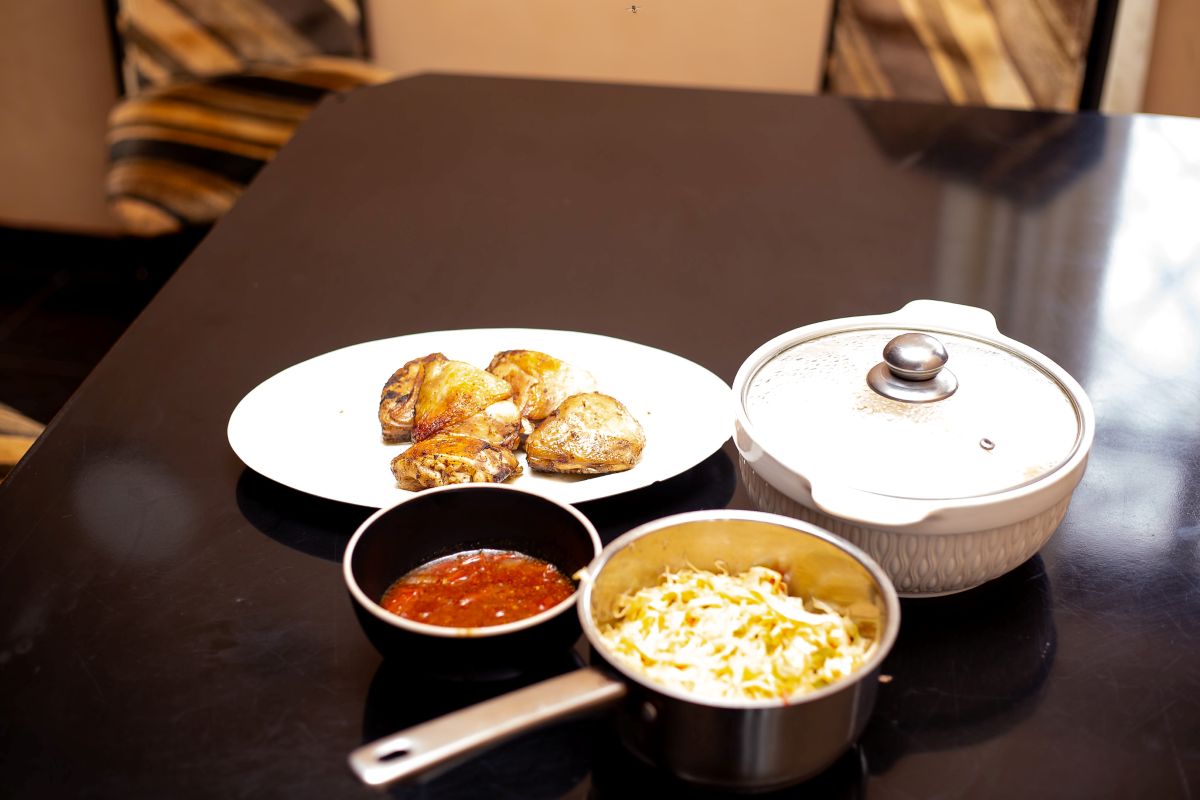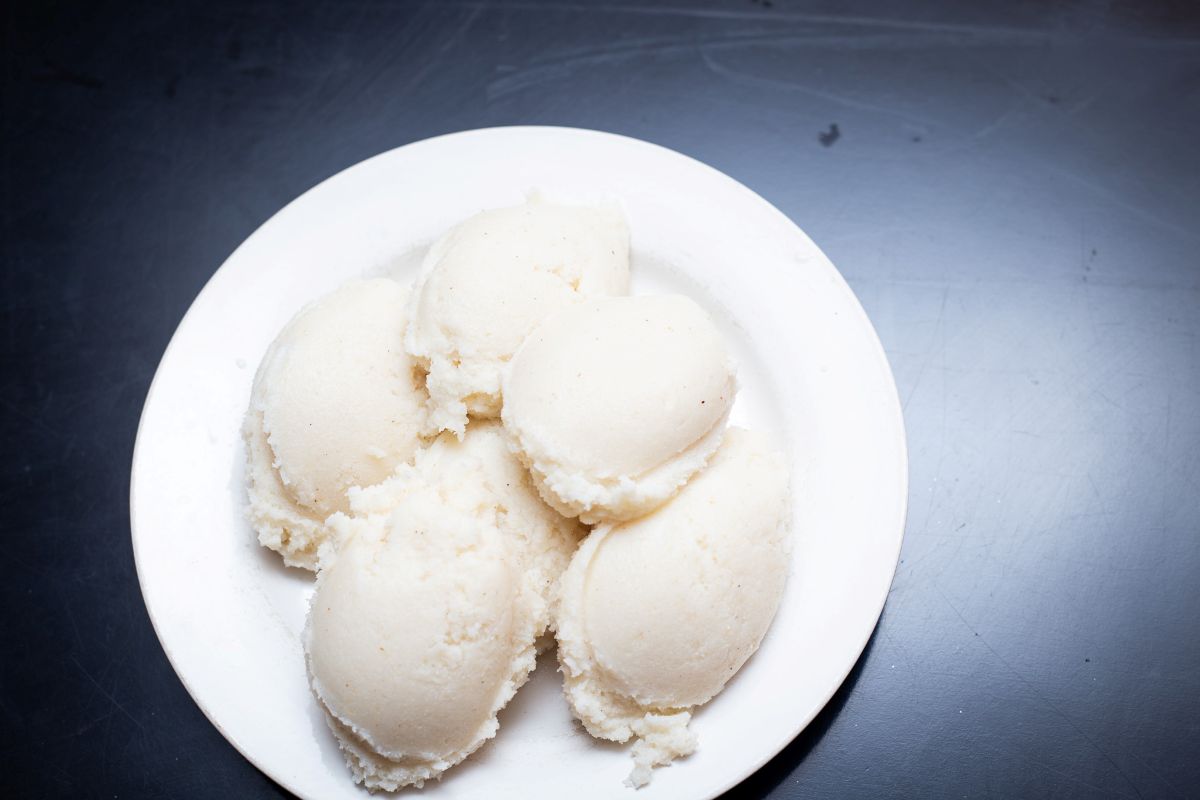The popular Zambian dish Nshima is a staple food in Zambia, made from maize meal or cornmeal. It's often served with a variety of relishes, including vegetable, meat or beans. "Nshima, everything else is a snack," is a humorous way to express its importance in Zambian cuisine.
It implies that Nshima is the main course, and everything else is just a supplementary snack. Nshima is more than just a source of sustenance but it is also a symbol of community hospitality, mutuality, sameness and tradition in Zambia.
Cultural Significance
Nshima is often served at social gatherings, ceremonies and special occasions. The act of sharing Nshima with others is a sign of respect, friendship, and unity.
Complete Meal
While Nshima can be enjoyed on its own, it is often served with a variety of relishes, including stew braises and sauces. These relishes add flavour texture, taste and nutrients to the dish, making Nshima a well-rounded and satisfying meal.

Nshima as part of a complete meal.
Identity and Tradition
For many Zambians, a meal without Nshima is considered incomplete. The phrase "everything else is a snack" highlights the cultural belief that no matter what other foods you may consume throughout the day, without Nshima, you haven't really eaten a proper meal.
"In Zambia, we say 'Nshima, everything else is a snack' because it's that important to our daily lives. A day without Nshima is considered incomplete." — Nandy Z.
This cultural attitude reflects the deep connection between food and identity in Zambian culture, where Nshima serves not just as nutrition but as a cornerstone of culinary tradition and social cohesion.
Sharing a meal centered around Nshima is a communal experience that brings people together.

